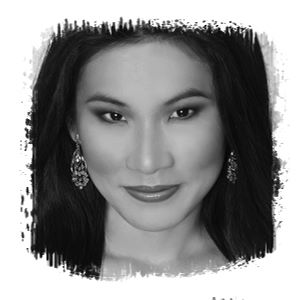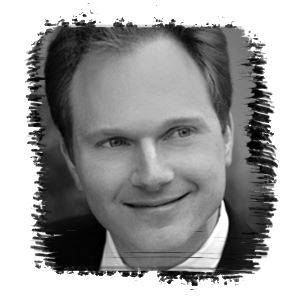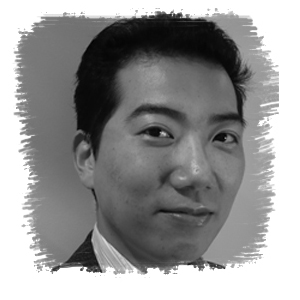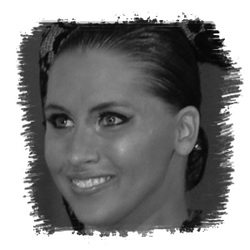SUMMER INSTITUTE FOR INTENSIVE ROLE STUDY
Thursday, July 18 ~ Saturday, July 27, 2019
at the National Opera Center, New York City
at the National Opera Center, New York City
Program A: Individual role study for singers
Program B: Apprentice collaborative pianists
Program B: Apprentice collaborative pianists
APPLICATION
APPLICATION FORM: Submit ONLINE or MAIL-IN
Click the "APPLY NOW!" button to begin online application or download the application form. APPLICATION DEADLINE: Early application is encouraged. We will stop accept application once the maximum enrollment is reached. AUDITIONSUBMIT RECORDING in lieu of live audition
REPERTOIRE: 2 ~ 5 ARIAS/SONGS THAT REPRESENT YOU THE BEST There is no limitation on language and style. Standard repertoire is preferred. Repertoire closed to the role(s) you would like to work on is preferred but not required. PROGRAMSProgram A: Individual Role Study
Participants choose roles that are useful and fit their current vocal development. It is suggested that participants choose only one major principal role, such as Don Giovanni or Violetta, to work on. For roles with shorter length in opera, participants may choose 2 roles, such as Sarastro + Sparafucile. Program B: Apprentice Collaborative Pianist This program is designed for collaborative pianists who are interested in learning operatic repertoire and becoming a vocal coach. Two pianists will have the opportunity to be a part of the program to gain experience as a répétiteur under the guidance of the MIMF faculties and guest artists. Pianists interested in gaining knowledge and experience in the operatic field will have the unique opportunity to study and work with leading professionals in the opera industry. Please contact program director at [email protected] for details and application. CURRICULUM
Daily Music Coachings
Participants work with MIMF coaches to polish the repertoire, including their chosen roles and additional assignments. Stage Craft & Character Study Daily dramatic coachings give participants opportunities to further explore their chosen roles and apply character study to the scenes for the final concert. Alexander Technique Posture is one of the most important components of classical vocal technique. Building good habit of carrying out good posture can not only help one's singing but also improve one's appearance and self-esteem. MIMF collaborates with certified Alexander Technique teachers with years of experience working with singers and pianists. Movement Nowadays, classical singers are expected to have the abilities to run around on the stage and perform basic dance movements. Masterclasses In order to bring the opportunity for the participants to work with experts of certain genres in the business and maximize the outcomes, masterclass guest teachers are invited according to the repertoire/roles that are being studied each summer. Role Study Vocally Learn about the vocal components in the technical aspect that one must master. Role Study Dramatically Explore various acting methods that are adopted on opera stage and acting exercises that are used in character preparation. More importantly, get inspired! Role Study Musically Learn about music preparation --what everything means on the score over different periods. Artist Presentation Many people have no idea "how they present themselves" on the stage, even when they "know how to present oneself" on the stage. Participants work together during the program to improve their self-awareness on the stage. Libretto Study How to study opera libretto? As most young singers probably do not speak the languages used in the operas that they are learning, it often doubles the effort. Understanding how opera libretto is set usually help one's learning progress and memorization. In addiction, it illustrates how composers set the texts into music. Artistic Strategic Planning Most schools and teachers do not provide comprehensive guidance to young singers regarding how to package themselves up for the "outside world." MIMF offers useful insights for young singers' self-artist-management--from audition materials to career planning. Makeup Professional opera companies take care of artists' wigs and makeup. However, most young singers have to take care of their own makeup when they perform at schools, young artist programs, and small opera companies, where no one actually teaches performers how to do various styles of makeup in detail. The makeup session is conducted by a stage/celebrity makeup artist to demonstrate makeups for audition, photo, and stage. |
ACTIVITIES
Death by Aria
It's a typical "ritual" of summer programs. On the first day of the program, each participant performs an aria (or a song) that represents him/herself. --This is how the faculties and the participants get to know each other artistically. Mock Audition Friends of MIMF, including conductors, voice teachers, vocal coaches, directors, audition pianists, professional singers, agents, etc. will join the mock audition panel and give a group feedback session afterwards over light lunch provided by MIMF. Final Concert MIMF always tries to avoid presenting an "aria convention" for concerts and prefers to put together scenes by giving additional assignments to participants to perform in each other's scenes. These additional assignments may be repertoire that the participant have sung before or may sing it in the near future. Part of the concert may be accompanied by string ensemble. Live streaming of the concert is available for participants to share with their friends and family who are not in New York. FACULTYCore Faculty Team
Masterclass instructors (guest artists/agents) will be invited based on participants' repertoire and other musical indicators. Masterclass instructors in the past summers included:
KEN BENSON (2014), Artist Management JOHN MARIO DI COSTANZO (2014), Conductor/Sarasoda/Tri-Cities Opera TERENCE GOFF (2014~2017), Tenor KAREN HO (2017), San Francisco Opera, American Composers Orchestra RACHELLE JONCK (2014), Assistant Conductor/Bel Canto at Caramoor JOAN KRUEGER (2014~2016) Classical Singer Mag azine’s Coach of the Year/SUNY Purchase ISABEL MILENSKI (2015), Stage Director/Hofstra University/Floating Opera AKIKO NAKAJIMA (2015), Soprano/Stage Director/Mozarthaus Vienna/Vienna University of Technology PAUL PEERS (2016-2017), Freelance Stage Director/HERE Arts Residency/Hawaii Opera Theatre GIOVANNI REGGIOLI (2014), Conductor LUCY YATES (2016~2017), Vocal Coach/Italian Language Coach VENUESMost program activities takes place at the National Opera Center of Opera America. All other locations are accessible via New York City Public Transportation.
TUITIONTRAVEL/HOUSING
US$1,495. Partial scholarship may be available. Scholarship offer decisions are made based on the application materials. MIMF also gives participants self-fundraising suggestions.
Participants are responsible for their own travel and housing arrangements. Housing suggestions are available upon request. Please see FAQ below for more information.
TIMELINE
|
FAQ
FACULTIES & PARTICIPANTS
WHY MIMF?
MIMF Vocal Academy has been providing opportunities for participants to learn from world renowned artists, including studying Baroque repertoire with acclaimed soprano Julianne Baird, working on French vocal repertoire Thomas Grubb, and understanding both music and business trend with Metropolitan Opera conductor Gregory Buchalter. Many MIMF participants were cast in main-stage productions via recommendations of faculty members and visiting artists.
ABOUT THE ROLE STUDY PROGRAM
HOW MANY ROLES CAN I LEARN?
It is suggested that participants choose only one major principal role, such as Don Giovanni and Violetta, to work on.
For roles with shorter length in opera, participants may choose 2 ~ 3 roles, such as Sarastro + Sparafucile.
The role you choose to learn and polish this summer should be useful and should fit your current vocal development.
DOES THE "ROLE STUDY" ONLY APPLY TO OPERATIC ROLES?
The roles are not limited to operatic repertoire. Participants may choose to work on characters from song cycles, for example, Die schöne Müllerin, Dichterliebe, etc.
IF I AM NOT READY TO WORK ON A COMPLETE ROLE, COULD I WORK ON A PARTIAL ROLE?
Yes. Since the program is tailored for individual needs, MIMF faculties will work with you on what you have prepared. Our goal is to guide participants to build up the competency for role study.
DO I NEED TO MEMORIZE THE ROLE(S) I WANT TO WORK ON?
Participants should arrive with all repertoire memorized.
CAN I COACH MY AUDITION ARIAS?
Participants are welcome to bring additional materials to work on during the program, but the priority should be placed on the role study assignments.
WHAT ARE THE PUBLIC PERFORMANCES DURING THE PROGRAM?
All the masterclasses and concerts are open to the public. Participants will perform and participate in daily masterclass. There will be a final concert with scene selections from the role(s) learned, accompanied by piano and possibly chamber orchestra depends on the complexity of the music.
FINANCE
WHAT DOES THE TUITION COVER?
The tuition covers all the classes and individual sessions during the program. Participants are responsible for travel to and from Manhattan, ground transportation, and housing.
WHAT SOURCES OF FINANCIAL AID COULD I RECEIVE?
MIMF offers partial scholarship to participants based on their application materials. MIMF also provides participants self-fundraising suggestions.
IS THERE PRACTICE ROOM AVAILABLE DURING THE PROGRAM?
Participants are welcome to rent practice rooms from the National Opera Center or any near-by venues, such as Simple Studios, Ripley Grier, or Pearl Studios at their own cost.
TRAVEL & HOUSING
HOW DO I FIND BUDGET HOUSING IN NEW YORK CITY?
Many participants sublet apartments during the program. Airbnb is the most common website to find a place for short-term stays. Many musicians and students post summer sublet info on Craigslist and Facebook. It is very convenient to commute to Manhattan from New York City's 5-Borough area and Jersey City, NJ. Participants can easily find out if the location is easily accessible via public transportation using Google Maps. Some participants use points from airline/hotel rewards programs donated from their family and friends.
WHAT NEARBY AIRPORT SHOULD I CHOOSE TO FLY IN?
You may fly to any of the NYC area airports: LGA, JFK, or EWR. Please visit these airports' websites for options of ground transportation (train/bus/subway/super shuttle/taxi/Uber) to your destination.
(INTERNATIONAL PARTICIPANTS) DO I NEED A VISA TO ENTER THE UNITED STATES? WHAT KIND OF VISA DO I NEED TO APPLY?
International participants are responsible for obtaining a B-2 VISA --Please visit the US VISA waiver website for more information.
DO I NEED TO PURCHASE TRAVEL INSURANCE?
We strongly suggest all participants purchase travel insurance with trip cancellation/interruption coverage and medical emergencies expense coverage. Trip cancellation/interruption policies usually covers sickness and injury; weather damages the destination or cancels your flight; terrorist incident in the destination city; bankruptcy of your travel supplier; etc. It is extremely expensive to see a doctor in the U.S.! If the medical insurance you have in your own country doesn't cover the medical expenses aboard, it is very important for you to consider having travel insurance that covers medical emergencies expense. Some credit cards may offer overages on trip cancellation/delay and lost baggage when you use them to purchase flight ticket. Please read the insurance policy carefully before you purchase one.
DO I HAVE TIME FOR SIGHTSEEING DURING THE PROGRAM?
The program's daily schedule is from 10AM to 10PM with lunch and dinner breaks (one hour each). Participants will expect a fully booked schedule and will not have much leisure time.
WHY MIMF?
MIMF Vocal Academy has been providing opportunities for participants to learn from world renowned artists, including studying Baroque repertoire with acclaimed soprano Julianne Baird, working on French vocal repertoire Thomas Grubb, and understanding both music and business trend with Metropolitan Opera conductor Gregory Buchalter. Many MIMF participants were cast in main-stage productions via recommendations of faculty members and visiting artists.
ABOUT THE ROLE STUDY PROGRAM
HOW MANY ROLES CAN I LEARN?
It is suggested that participants choose only one major principal role, such as Don Giovanni and Violetta, to work on.
For roles with shorter length in opera, participants may choose 2 ~ 3 roles, such as Sarastro + Sparafucile.
The role you choose to learn and polish this summer should be useful and should fit your current vocal development.
DOES THE "ROLE STUDY" ONLY APPLY TO OPERATIC ROLES?
The roles are not limited to operatic repertoire. Participants may choose to work on characters from song cycles, for example, Die schöne Müllerin, Dichterliebe, etc.
IF I AM NOT READY TO WORK ON A COMPLETE ROLE, COULD I WORK ON A PARTIAL ROLE?
Yes. Since the program is tailored for individual needs, MIMF faculties will work with you on what you have prepared. Our goal is to guide participants to build up the competency for role study.
DO I NEED TO MEMORIZE THE ROLE(S) I WANT TO WORK ON?
Participants should arrive with all repertoire memorized.
CAN I COACH MY AUDITION ARIAS?
Participants are welcome to bring additional materials to work on during the program, but the priority should be placed on the role study assignments.
WHAT ARE THE PUBLIC PERFORMANCES DURING THE PROGRAM?
All the masterclasses and concerts are open to the public. Participants will perform and participate in daily masterclass. There will be a final concert with scene selections from the role(s) learned, accompanied by piano and possibly chamber orchestra depends on the complexity of the music.
FINANCE
WHAT DOES THE TUITION COVER?
The tuition covers all the classes and individual sessions during the program. Participants are responsible for travel to and from Manhattan, ground transportation, and housing.
WHAT SOURCES OF FINANCIAL AID COULD I RECEIVE?
MIMF offers partial scholarship to participants based on their application materials. MIMF also provides participants self-fundraising suggestions.
IS THERE PRACTICE ROOM AVAILABLE DURING THE PROGRAM?
Participants are welcome to rent practice rooms from the National Opera Center or any near-by venues, such as Simple Studios, Ripley Grier, or Pearl Studios at their own cost.
TRAVEL & HOUSING
HOW DO I FIND BUDGET HOUSING IN NEW YORK CITY?
Many participants sublet apartments during the program. Airbnb is the most common website to find a place for short-term stays. Many musicians and students post summer sublet info on Craigslist and Facebook. It is very convenient to commute to Manhattan from New York City's 5-Borough area and Jersey City, NJ. Participants can easily find out if the location is easily accessible via public transportation using Google Maps. Some participants use points from airline/hotel rewards programs donated from their family and friends.
WHAT NEARBY AIRPORT SHOULD I CHOOSE TO FLY IN?
You may fly to any of the NYC area airports: LGA, JFK, or EWR. Please visit these airports' websites for options of ground transportation (train/bus/subway/super shuttle/taxi/Uber) to your destination.
(INTERNATIONAL PARTICIPANTS) DO I NEED A VISA TO ENTER THE UNITED STATES? WHAT KIND OF VISA DO I NEED TO APPLY?
International participants are responsible for obtaining a B-2 VISA --Please visit the US VISA waiver website for more information.
DO I NEED TO PURCHASE TRAVEL INSURANCE?
We strongly suggest all participants purchase travel insurance with trip cancellation/interruption coverage and medical emergencies expense coverage. Trip cancellation/interruption policies usually covers sickness and injury; weather damages the destination or cancels your flight; terrorist incident in the destination city; bankruptcy of your travel supplier; etc. It is extremely expensive to see a doctor in the U.S.! If the medical insurance you have in your own country doesn't cover the medical expenses aboard, it is very important for you to consider having travel insurance that covers medical emergencies expense. Some credit cards may offer overages on trip cancellation/delay and lost baggage when you use them to purchase flight ticket. Please read the insurance policy carefully before you purchase one.
DO I HAVE TIME FOR SIGHTSEEING DURING THE PROGRAM?
The program's daily schedule is from 10AM to 10PM with lunch and dinner breaks (one hour each). Participants will expect a fully booked schedule and will not have much leisure time.
Program details are subject to change. Stay tuned for more program details.





